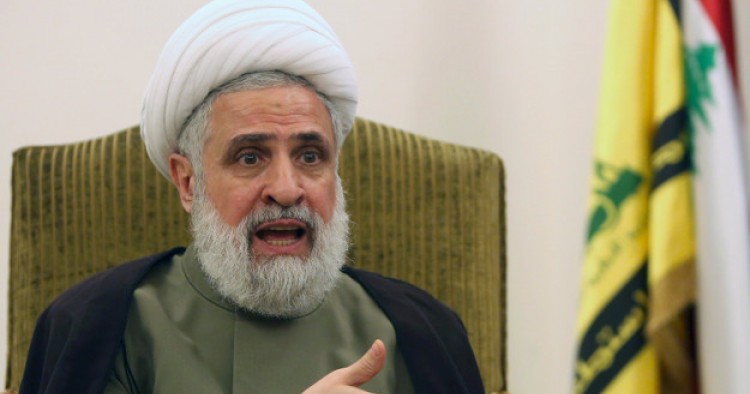The deputy head of Lebanon’s Hezbollah organization, Naim Qassem, has again come out to remind a skeptical Lebanese population about reasons why the militant group has intervened in the Syrian conflict. According to Qassem, Hezbollah’s approach is “non-interference in the affairs of other countries” but that the group will “support its allies.” He made a blunt comparison to Iranian and Syrian support for Hezbollah during the 2006 “33-day war” with Israel. He acknowledged that its present military intervention to keep the regime of Bashar Al Assad in power is repayment for the support the group received in 2006.
While he attacked the policies of the United States, Israel and Saudi Arabia, Qassem was quick to praise Russian policies in the Middle East. “We have many common interests with the Russians in the Middle East and the threat of terrorism in Syria has deepened our common position, he said. However, Qaseem was also careful to qualify the state of the Hezbollah-Russian partnership.
He specifically pointed out that the tactical cooperation between the two has developed at this particular “moment in time,” in the fight against what Qassem called “terrorist threat in Syria” but expressed no opinion about the longevity of this partnership. This Hezbollah caution about relations with Moscow echoes Iranian doubts about the long-term ambitions and game plan of the Russians in the Middle East.
The Middle East Institute (MEI) is an independent, non-partisan, non-for-profit, educational organization. It does not engage in advocacy and its scholars’ opinions are their own. MEI welcomes financial donations, but retains sole editorial control over its work and its publications reflect only the authors’ views. For a listing of MEI donors, please click here.













